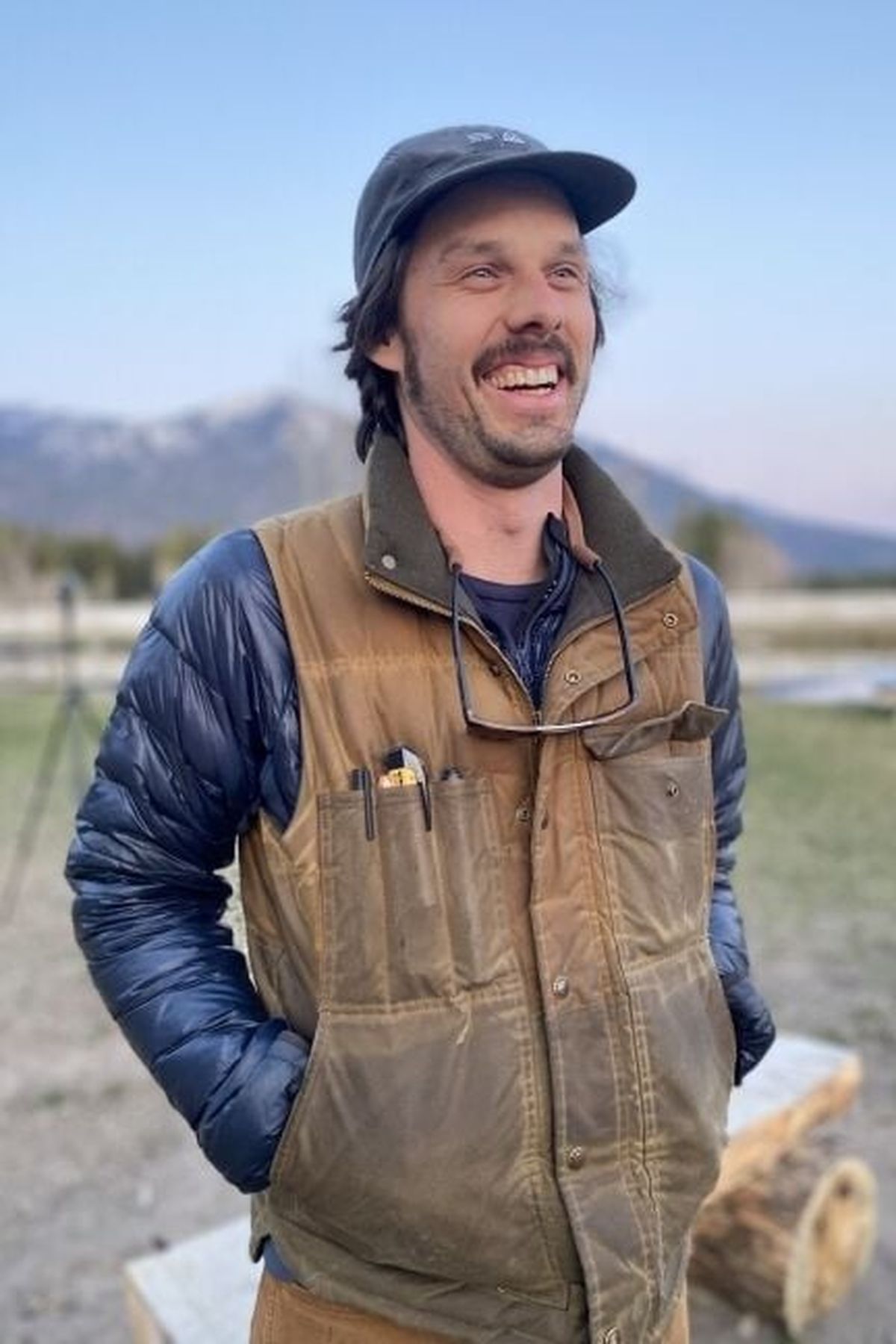Patrick Hutchison builds ‘Cabin’ off nostalgia, hard labor

Patrick Hutchison’s friends were making bewildering (to him) decisions: getting married, buying houses, enrolling in grad school. He earned decent pay as a copywriter for a Seattle tech company, but his life could be broken down to his commute to work, eight hours under fluorescent lighting and the commute home.
He was looking through Craiglist for an escape and found a tiny cabin in Index, Washington, that needed significant repairs. With almost zero formal handyman skills, he made the purchase under the guise that he was making his own adult decision.
“What it ended up being is, everybody is becoming adults,” Hutchison said. “I’m gonna get a place and lure them there to stop being adults, because I think that that’s ultimately what I want, is for people to stop doing what they’re doing.”
On Thursday, Northwest Passages will feature Hutchison, author of “Cabin: Off the Grid Adventures with a Clueless Craftsman,” a memoir he wrote about that period, in conversation with The Spokesman-Review Outdoors columnist Ammi Midstokke. “Cabin” is his first book.
Electricity and plumbing didn’t reach the cabin, and the book sees Hutchison and his recruits – friends more than happy to escape their modern conveniences for weekends or weeks at a time – face problem after problem. Hutchison writes about these instances with an eye for humor, and his voice is earnest and big-hearted.
“I had used the drill once before,” Hutchison wrote. “The goal had been a small hole in some drywall for a modest hook, but I underestimated the drill’s power by a factor of 6 or 7 million. The drill bit and then the drill itself went through the wall much like that Kool-Aid fellow tends to enter a room.”
Hutchison started writing his memoir almost immediately after purchasing the cabin, but the book gained steam because he and his friend, Bryan Schatz, were in a similar place in their careers, while both living unconventionally. Schatz was living on a houseboat on a marina in Oakland, California, while reporting for Mother Jones.
“I think our careers had sort of gone in step until we were both just like in an office most of the time wondering if it was too soon to go get another coffee just so we could get up and walk around,” Hutchison said. “We didn’t like the environment and we didn’t really like the work that we were doing.”
They started Duesday, when they each had to submit pages they’d written to each other every Tuesday, to hold each other accountable.
In the book, we see how the more time Hutchison spends putting labor into the cabin, the more untenable life at a desk becomes. Now, Hutchison works for Seattle company Wild Tree Woodworks, building treehouses full time.
“I think if I ever had to do it with people that I didn’t like being around, it would 100% wipe away the value of it to me,” Hutchison said. “I knew that, first and foremost, I just wanted to have those good relationships with whoever I was working with and then secondly, I wanted to build spaces that felt kind of true to my passions and (Wild Tree Woodworks) actually ticked both of those boxes. You know, small, intimate spaces where people are going intentionally to have special moments.”
For Hutchison, the value of the cabin was that it was small, cut off from electricity and cell reception. A place where he and his friends could play in the wet and snow, and then return from the cold to the warmth of the cabin, safe and sheltered.
“The cabin is also so intrinsically tied to a certain time in my life and the lives of my friends,” Hutchison said. “No one had kids. We all had tons of spare time. A lot of us lived together. I think the thing that I missed the most is just the ability to get away with close friends at regular intervals and be in those spaces and you know kind of have that time and make those connections … It was very hard to, when writing the book, to be so kind of ensconced in that time and having to lean into that nostalgia. It wouldn’t be possible to go back to that no matter how many cabins I built.”